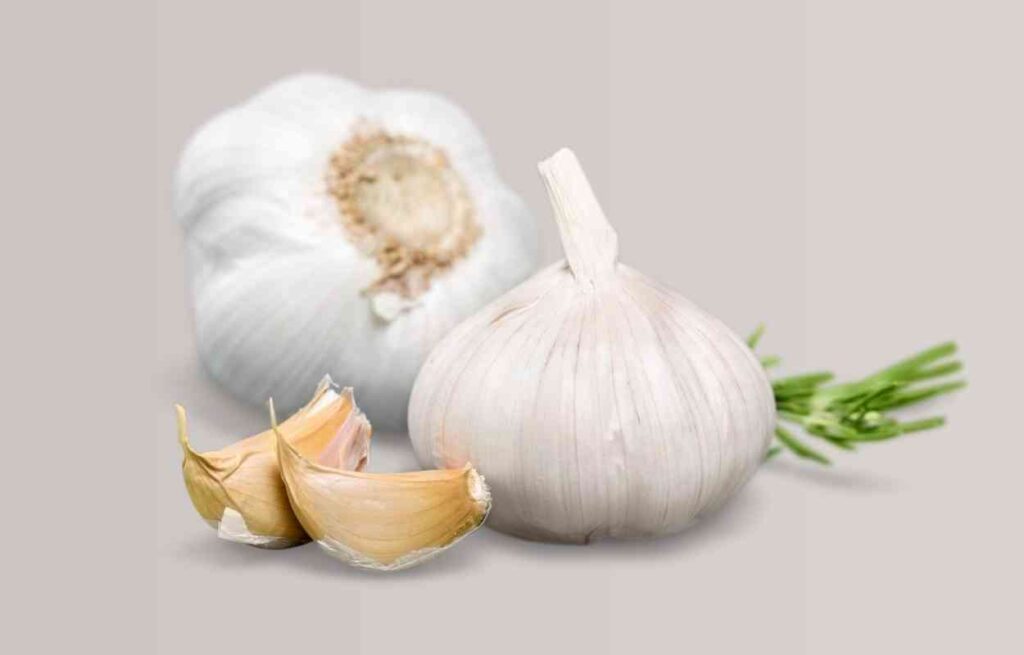Does Freezing Garlic Destroy Allicin?
If you’re a garlic lover or someone who appreciates the health benefits of this pungent bulb, you may have wondered whether freezing garlic destroys its valuable compound, allicin. Allicin is known for its potent antimicrobial properties and is responsible for many of garlic’s health benefits. But, does freezing garlic destroy allicin?
Freezing garlic results in a reduction of allicin content but does not completely destroy it. Allicin, the compound responsible for many health benefits in garlic, is formed when garlic is crushed or chopped. Freezing inactivates the alliinase enzyme, responsible for allicin formation.
While some allicin is retained in frozen garlic, studies indicate a decrease in its content. Pre-crushing garlic before freezing can maximize allicin levels. Thawing garlic and allowing it to sit before use enhances allicin formation. Freezing garlic remains a practical preservation method, albeit with reduced allicin compared to fresh garlic.

What is Allicin and Its Health Benefits?
Before we dive into the effects of freezing on allicin, let’s first understand what allicin is and why it’s important. Allicin is a compound that is formed when garlic is crushed or chopped. It is responsible for the characteristic smell and flavor of garlic, as well as its many health benefits.
Allicin has been found to have potent antimicrobial, antioxidant, and anti-inflammatory properties, making it a valuable compound for promoting overall health and well-being.
Studies have shown that allicin may help lower blood pressure, reduce cholesterol levels, boost the immune system, and even inhibit the growth of certain cancer cells.
It has also been found to have antibacterial and antifungal effects, which can help fight off infections caused by harmful pathogens. With all these potential health benefits, it’s no wonder why allicin is highly regarded in the world of natural medicine and nutrition.
The Importance of Preserving Allicin in Garlic
Given the numerous health benefits associated with allicin, it’s important to ensure that garlic retains its allicin content for maximum therapeutic value.
However, garlic is a perishable food that tends to spoil quickly if not stored properly. This is where freezing comes into play.
Freezing garlic is a popular method for extending its shelf life and preserving its flavor and aroma. But does freezing garlic also preserve its allicin content?
Does Freezing Garlic Destroy Allicin?
Freezing garlic does not completely destroy allicin, but it does lead to a reduction in its content. Allicin is a beneficial compound found in garlic that is formed when the garlic is crushed or chopped.
However, when garlic is frozen, the alliinase enzyme responsible for allicin formation is inactivated. As a result, less allicin is produced when the frozen garlic is thawed.
To maximize the allicin content in frozen garlic, it is recommended to crush or chop the garlic cloves before freezing them. This initiates the enzymatic reaction and allows for some allicin to form prior to freezing.
Thawing the garlic and allowing it to sit for about 15 minutes before use can also facilitate additional allicin formation. Despite the reduction in allicin content, freezing garlic can still be a convenient preservation method that retains some of the beneficial properties of garlic.
Other Factors That Affect Allicin Content in Garlic
While freezing may have minimal impact on allicin levels in garlic, it’s worth noting that other factors can also affect the allicin content. For example, cooking garlic at high temperatures for an extended period can cause a significant loss of allicin.
Allicin is a volatile compound that is sensitive to heat, so prolonged cooking can break it down and reduce its concentration in garlic.
Additionally, the age and storage conditions of garlic can also influence allicin content. Freshly harvested garlic typically contains higher levels of allicin compared to older garlic bulbs.
Proper storage of garlic in a cool, dry place can help preserve its allicin content for longer periods. Exposure to heat, moisture, and light can accelerate allicin degradation, so it’s essential to store garlic properly to retain its health benefits.
Ways to Preserve Allicin in Garlic
If you’re concerned about preserving the allicin content in garlic, there are a few steps you can take to minimize its loss. Here are some tips for preserving allicin in garlic:
- Use fresh garlic: Opt for freshly harvested garlic bulbs whenever possible, as they tend to have higher allicin levels.
- Keep garlic cool and dry: Store garlic in a cool, dry place away from direct sunlight and moisture. This will help slow down allicin degradation.
- Minimize cooking time: To retain as much allicin as possible, cook garlic for a shorter duration at lower temperatures. This will help preserve its allicin content while still adding flavor to your dishes.
- Crush or chop garlic before use: Allicin is formed when garlic is crushed or chopped, so ensure that you crush or chop your garlic cloves before adding them to your recipes.
Tips for Using Frozen Garlic with Maximum Allicin Benefits
If you choose to freeze garlic for convenience or to extend its shelf life, here are some tips for using frozen garlic while maximizing its allicin benefits:
1. Thaw Garlic in the Refrigerator
When you’re ready to use frozen garlic, thaw it in the refrigerator rather than at room temperature. This will help minimize any potential loss of allicin during the thawing process.
2. Add Frozen Garlic to Cooked Dishes
Instead of thawing frozen garlic completely, you can directly add frozen garlic to your cooked dishes. The heat from cooking will help release the allicin and infuse it into your food.
3. Use Frozen Garlic in Recipes That Require Cooking
Frozen garlic is ideal for recipes that involve cooking or sautéing. The heat will help release the allicin and distribute it throughout the dish.
4. Consider Using Freeze-dried Garlic
If you’re concerned about allicin loss during freezing, you can opt for freeze-dried garlic. Freeze-drying preserves the allicin content and provides a convenient alternative to fresh garlic.
Final Thoughts
In conclusion, while freezing garlic may result in a slight loss of allicin, the impact is minimal and may not significantly affect the health benefits of frozen garlic.
Other factors, such as cooking and storage conditions, can also influence the allicin content in garlic. By following proper storage practices and using fresh garlic whenever possible, you can maximize the allicin benefits of this versatile ingredient.
